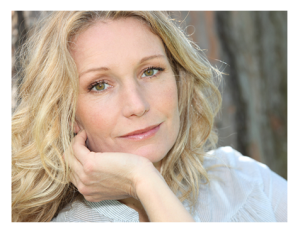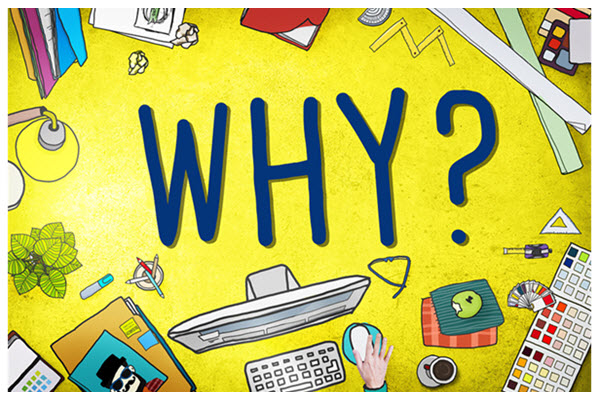His approach to resolving the challenge on hand was all about asking questions — how do you use this, why do you need that — questions, especially “why,” that led to systems I could live with.
 Standing in front of his “work product” put in place six months ago, I’m still delighted: I see two jars of sweet peppercorn relish (well within reach); brown rice, wild rice, quinoa and flax seed (in bags and boxes with related spices); cooking oil and mixes and baking tins, clearly visible and impeccably lined up. Only minutes earlier, my search for the right wattage took less than 30 seconds as I went straight to a small storage closet where towels, linens and cartons of bulbs are (now) neatly stacked.
Standing in front of his “work product” put in place six months ago, I’m still delighted: I see two jars of sweet peppercorn relish (well within reach); brown rice, wild rice, quinoa and flax seed (in bags and boxes with related spices); cooking oil and mixes and baking tins, clearly visible and impeccably lined up. Only minutes earlier, my search for the right wattage took less than 30 seconds as I went straight to a small storage closet where towels, linens and cartons of bulbs are (now) neatly stacked.
All of this organization, courtesy of my college-aged son.
As a person whose memory is highly visual, and with admitted difficulty adjusting to modifications in my immediate physical environment — I want to be able to quickly lay my hands on the book, the cooking utensil, or the piece of clothing I can picture in my mind. I’m typically in a hurry (my days are jam-packed); I want what I want in order to get things done — and I want it fast!
So how exactly had I managed to adhere to these changes without any drama?
The answer is simple. The successful reconfiguration of my space was due to the questions my son posed and his follow-up to my answers. It’s about collaboration. Give-and-take. His ‘why’ as well as my own.
Good Teachers Love Questions; So Should Good Doctors
One of the aspects of parenting that I’ve always loved is the undeclared role of teacher. What mother or father isn’t on the receiving end of an endless stream of questions from a child — especially ‘why?’
How many of us recall our most engaging teachers and instructors when we were students? My own favorites were those who loved questions. The more ‘how and why’ the better; much more so than any ‘what.’
Naturally, those same teachers were skilled in questions of their own — not the sort that anticipate a student spitting out memorized facts, but those that engaged critical thinking, creative thinking, an ongoing conversation that pushes a student to verify, to justify, at times to qualify — and to pursue a line of inquiry with gusto and freedom.
In fact, some educators make a point of emphasizing questions like ‘how do you know’ and ‘why is it important’; I would like to think those in the business world would be similarly inclined. Sadly, in a time-is-money-and-I’m-in-charge environment, this isn’t necessarily the way conversations play out.
The source above explains:
… When ‘How’ and ‘Why’ drive our classrooms, there is no need to explore content first. The ‘What’ of a subject is explored as we investigate the ‘How’ and ‘Why.’
 If only physicians enjoyed the same love of questions and answers. I realize their constraints are different; the U.S. healthcare system sees to that. Still, how often have our questions as patients — consumers of medical services — been squelched?
If only physicians enjoyed the same love of questions and answers. I realize their constraints are different; the U.S. healthcare system sees to that. Still, how often have our questions as patients — consumers of medical services — been squelched?
How frequently are women (especially) dismissed by healthcare practitioners as hormonal or depressed, as underlying causes for chronic pain are ignored?
Wouldn’t we all be better off for the freedom to ask questions and the necessity of considering the answers? Wouldn’t we all be better off with fewer assumptions?
Entrepreneurs and Creatives Thrive on How and Why
In my experience working on both technology teams and creative teams, I’ve always found brainstorming to be fun. Grueling at times, sure, but also, exciting. Not only are we asking why, we’re asking ‘why not.” Innovation and problem-solving are served by these questions, and the ongoing flow of proposed or actual answers that guide us through the next steps.
Last summer, my son’s organizing systems came together for me because he understood the importance of knowing how I interacted with my environment — what I needed, how frequently I used it, and the particular access needs of a petite woman with a dicey back. And the only way to reach this understanding was through dialog with no ego involvement and no personal agenda.
When I would explain why I couldn’t comply with one of his suggestions the way he imagined it — stemware was too high for me to reach, the holiday roasting pan wasn’t an object that I needed often, the current step stool was too heavy for me to move — he altered his rearrangement of my spaces as if I were the client.
And in a way, that’s what I was.
Not only did he ask why and listen when I answered; his ‘why not’ encouraged me to think outside my own box, and visualize additional workable options.
(Hello? How about a smaller and lighter-weight step stool among them?)
Just Because It’s Different Doesn’t Mean It’s Wrong
Just because it’s different doesn’t mean it’s wrong.
 This is an obvious lesson I should’ve mastered years ago, and didn’t. Better late than never, right?
This is an obvious lesson I should’ve mastered years ago, and didn’t. Better late than never, right?
My younger son, just home from college for the holidays, is reminding me all over again how useful it can be to spend time with someone who sees and engages with the world differently from myself.
He cuts his sandwiches diagonally now; this isn’t what we did when he was a child. I asked why and once he explained the logistical advantages, I began to adapt his mode of cutting.
Another little example?
He’s fond of omelets heavy on the veggies, and it used to annoy him that I couldn’t seem to cut an onion straight. He thought I was being lazy or sloppy. I explained why my angle cuts were the best I could manage: At my diminutive stature relative to the kitchen counter and still a matter of back issues, I cannot physically slice straight through a large onion with the same force as my son. I can, however, manage angles without a problem.
Once I explained, he stopped being irked. He had his way and I had mine; no more butting heads over onions.
I’ve always been a person who seeks the reasons that something occurs, whether a matter of motivations for something I want, or a post mortem on why a project or relationship seemed to come up short. As a parent, I erred on the side of providing context when it came to expectations for my children, and likewise as a professional. I believe that we all address tasks and responsibilities better when we understand the whys.
The Importance of ‘Why’ and ‘Why Not’
Standing in front of my shelves of herbs and canned goods and categories of objects — not exactly “designer” but incredibly efficient all the same — I’m pleased as punch to have my organizer home again. Though he only just arrived, we’ve already spent hours in conversation — dialog that includes plenty of questions and fascinating responses — as we’ve discussed his thesis project and related topics.
 I can’t help but consider the frequency of ‘why’ and ‘why not’ as we converse, which leads me to realize just how significant these questions are throughout our lives.
I can’t help but consider the frequency of ‘why’ and ‘why not’ as we converse, which leads me to realize just how significant these questions are throughout our lives.
Aren’t we more apt to embark on change when we ask ourselves why we do a thing, or why we do it in a certain way? Can’t we give ourselves credit for courage when we ask why we’re angry, sad, or lonely? Don’t we seriously consider alternatives when we begin to process possibilities, or when we recognize inertia due to habit or fear?
How many of us have asked ourselves:
- Why do I want to start a new business?
- Why do I want to leave this job?
- Why do I want to write a book, and why this subject?
- Why do I want to take up violin, running, or chess?
- Why do I want out of this relationship?
- Why do I need to start dating again?
- Why do I want or need to relocate?
- Why not my own business, a new job, a book project, new people, or new beginnings somewhere else?
And then my favorite question to combat fear of change: What’s the worst that can happen, even if things don’t work out?
Home for the Holidays
Sometimes I ask myself why I feel so much more content when one or both of my sons are home. Obviously, it’s always glorious to have people you love around, but for an empty nest single parent, for this empty nest single parent, it’s something more.
For a time, I thought it was because I was once again engaged in active mothering, albeit significantly less than when they were younger. I’m beginning to realize my pleasure is tremendously enhanced by the cerebral: the engagement of adult minds, that engagement including a sometimes off-the-wall sense of humor, practical jokes, and playful teasing. Moreover, the satisfaction is due to the nature of our conversations — their vibrancy, their freedom, the unbounded questions that ask why and why not, as subjects range from the arts and sciences to politics, pop culture, and relationships.
The ample flow of remarks forces me to reflect on my actions (or their absence), and my motivations. Some are clearly justified, and others are arbitrary.
Either way, the result is always greater mutual understanding among the three of us, and always… options we wouldn’t have seen if not for posing questions and taking the time to truly consider the responses.
You May Also Enjoy

Probably not nearly enough time for someone of your talent to throw something together on this topic when I ask WHY?? But, at least you can file it away for future consideration.
WHY do you no longer hear Christmas Carols?
WHY are Christmas decorations no longer in vogue?
Why do people no longer smile and say Merry Christmas?
Why did the absolute best holiday for a child become nothing more than a UPS package from Amazon?
Why will my Grand-Children never experience “The Night Before Christmas” the way I did?
Before anyone has a “Hissy Fit” I am a New Yorker and was raised in an area with a HUGE international environment and presence. In my “Gang” of friends and buddies with whom I spend every day with for over 15 years; we had: Oriental, Jewish, Christian, African American, Indian, etc. Christmas was SPECIAL for ALL of us!! No more.
WHY?
Excellent questions, Ron! Commercialization has deflated the experience of so many otherwise special times, including the holidays. (And I might say that social media, in its own way, has similarly degraded our ‘presence’ in and appreciation of otherwise good times.)
“Why?” is one of my all-time favorite questions, DW!
So happy you and your sons are able to engage in meaningful/reflective dialogue using this exploratory word! So happy you have company for the holidays! So happy you have organization during the holidays!
Here’s to a Merry Christmas and a safe, happy New Year! <3
Happy holidays to you, too, AE!